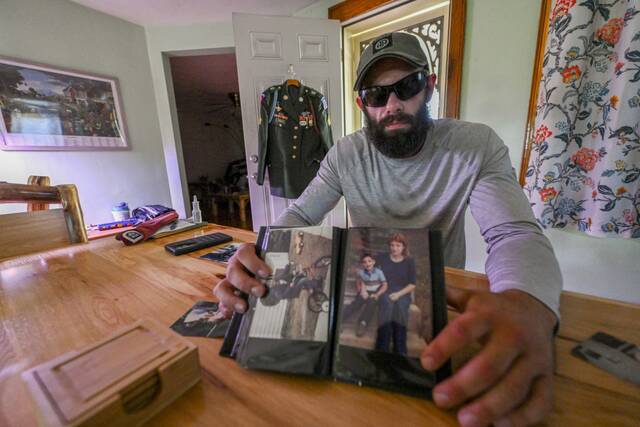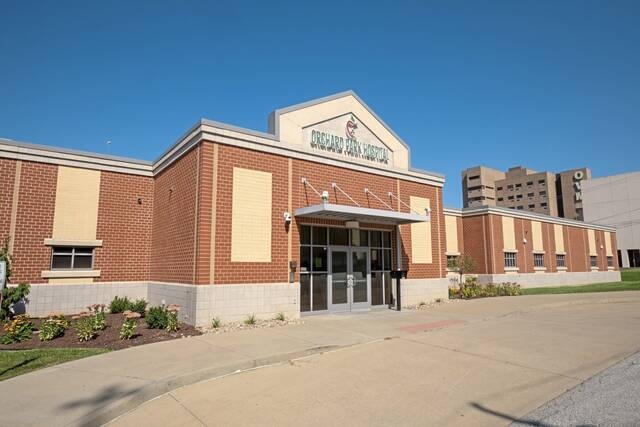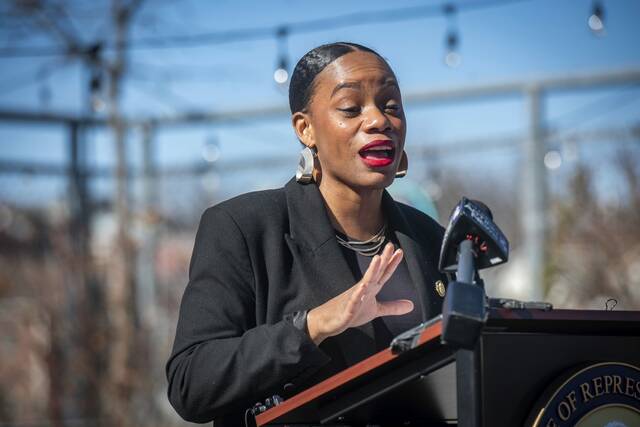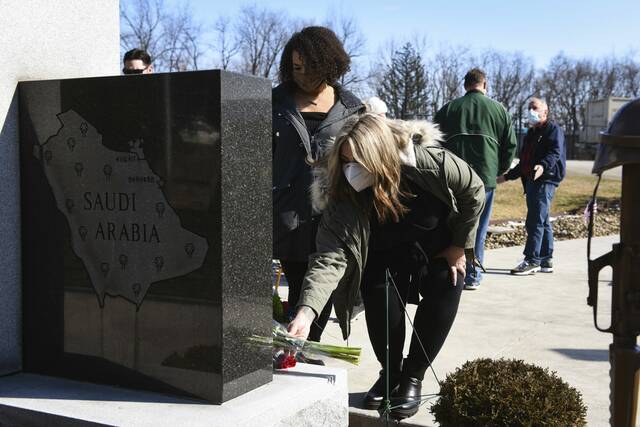TribLive was honored with a national Eppy Award for Best Daily News website for the second consecutive year, and Trib reporter Justin Vellucci won the prestigious award’s honor for best news or event feature.
TribLive captured second place for Best Daily News website with 1 million or more monthly unique visitors. The Trib also won second place in that category last year.
The Trib also was recognized with a second-place finish in the Best Overall Website Design category for sites with 1 million or more monthly unique visitors.
Vellucci was honored for his story “Hiding behind the badge: Police often shield officers’ names, details in fatal encounters.”
The story explored the fact that while the number of people being shot by police has steadily increased since at least 2020, according to a group that tracks such shootings, the number of cases in which those officers were identified has dropped precipitously.
As Vellucci writes, “Anonymity for police who use deadly force is part of a national phenomenon, one that often keeps officers’ names — and the details of their actions in fatal encounters — shielded from public scrutiny.” [See below.]
The EPPY Awards celebrate the best in digital journalism and innovation. “This year’s winners showcase how technology, collaboration, and storytelling continue to evolve across the media landscape — from bold investigative work to cutting-edge audience engagement,” the Eppy Awards website says.
Hiding behind the badge: Police often shield officers’ names, details in fatal encounters
By Justin VellucciSunday, Sept. 15, 2024
Christopher Shepherd was the first to die.
SWAT officers fatally shot him in January, a mentally ill man in crisis in the affluent suburb of Upper St. Clair.
Austyn Cousins was next, shot dead later that month by Pittsburgh police as he reached into his trunk, which held guns.
In June, police killed two people in the South Hills — Charles McGrath and Selwyn Brown — in less than a week. Both men attacked police.
And in July, a Churchill officer killed Gregory Carlson, 48, a construction manager who they said was armed outside his house.
These five men, all mortally wounded by authorities this year in Allegheny County, joined hundreds of others killed by police in 2024 in the U.S.
Their names appeared in obituaries, lawsuits, media stories and releases from the county medical examiner’s office.
But the officers who pulled the trigger?
In many cases, few know who they are because law enforcement isn’t telling.
Anonymity for police who use deadly force is part of a national phenomenon, one that often keeps officers’ names — and the details of their actions in fatal encounters — shielded from public scrutiny.
The pain of not knowing can be acute for relatives of those killed, such as Shepherd’s half-sister, Michelle Kippelen of Upper St. Clair.
“To this day, several days after my birthday, and nine months after my brother’s death, we have received absolutely nothing,” Kippelen told TribLive on Thursday. “Not a call, not a letter, nor a knock on the door, not the names of the officers who shot Christopher, not a single (bit of) body camera footage, not even a simple police report, even for the sake of much needed insurance benefits. Absolutely nothing.”
Blocking transparency
No government agency publicly tracks police killings, leaving news organizations and researchers to compile their own databases. The nonprofit group Mapping Police Violence puts the number of people killed by police in America last year at 1,247, which it said was a record.
In roughly 86% of these cases, the officers who used deadly force were not named, the group estimates. It based that number on an analysis of media reports followed by open-records requests to police departments for information.
Since at least 2020, Mapping Police Violence said, the number of people killed by police has steadily increased.
Meanwhile, the percentage of cases in which officers were named slid to 14% last year, down from 39% in 2020, according to the group.
The reasons offered for shielding officers are various.
Police unions seek to protect their members. Some departments prefer to operate in secrecy. And, in many states, including Pennsylvania, weak open-records laws don’t provide a way for the public to pry the names loose.








